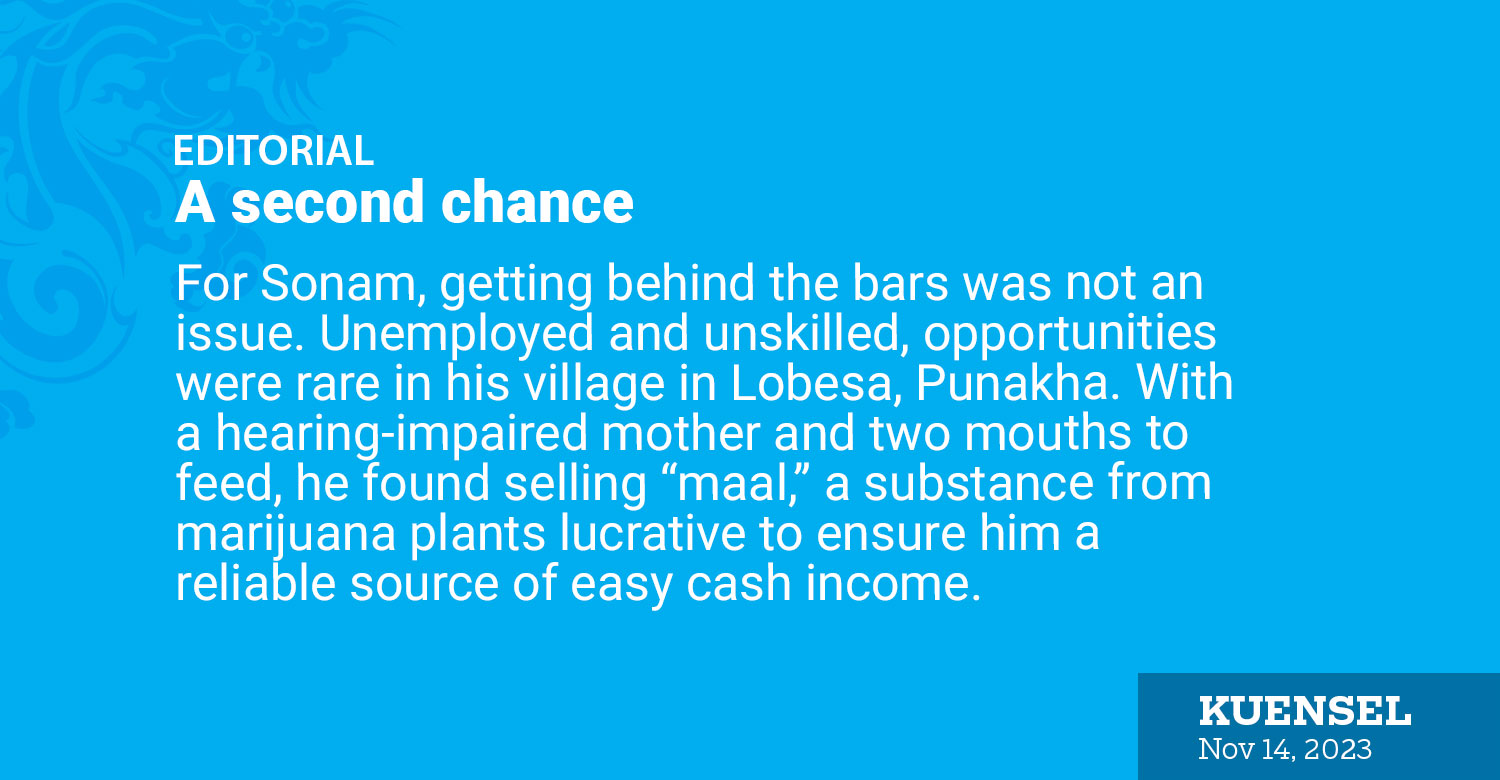For Sonam, getting behind the bars was not an issue. Unemployed and unskilled, opportunities were rare in his village in Lobesa, Punakha. With a hearing-impaired mother and two mouths to feed, he found selling “maal,” a substance from marijuana plants lucrative to ensure him a reliable source of easy cash income.
Sonam was caught red-handed with a friend and was imprisoned for three years for illicit trade in banned substances. His only worry is his deaf mother and the two kids. Given a chance, he would want to work, earn an income and take care of his family.
The possibility for Sonam and many others is becoming a reality with the start of a routine schedule to help inmates learn some life skills and start a new life when they complete their sentences
Coinciding with the birth anniversary of His Majesty the Fourth Druk Gyalpo, the PEMA Secretariat launched a Prison-Based Substance Use Disorder Treatment and Care programme at the Central Prison in Chamgang, Thimphu on November 11. It could be a turning point for many inmates.
The programme will provide inmates with a 12-step programme, a self-help guide basically to prepare them for a better life or future when they walk free. The launch of the programme is symbolic. As a Buddhist country, there is never the intention to punish fellow citizens for crimes many commit out of desperation. Repenting to bad action and learning from it to improve is much in line with what we preach and practice.
Crimes related to banned substances, especially rubbing the pollen of marijuana plants are mostly committed out of desperation, or for the lure of easy money. It is safe to surmise that most of those convicted would have not resorted to illegal ways of making a livelihood if they had other opportunities.
The rehabilitation of inmates, therefore, is a timely recognition of not only recognising the issue but also correcting citizens, most of whom are young and giving them a second chance. There are laws to ensure order. Laws are never meant to punish violators. If in implementing laws, we can correct even 10 percent of the violators, it is evidence of laws making an impact.
It is no use if an inmate, after serving his or her term, is let off on the street without learning anything. Many fall back on the easy way out – committing crime. Skilling inmates while they serve prison terms means providing them with opportunities. A prison system that helps inmates or equips them with skills to carve out a livelihood is the best system.
Interventions like that of the PEMA Secretariat recognise the help those coming into conflict need. The priority today with an election alive is the economy, the attrition and the exodus of people. Political parties trying to convince voters will not ponder over issues like correcting inmates in jail.
Elections, promises and pledges to woo voters are the talk right now. That the PEMA Secretariat and the Royal Bhutan Police are looking into issues that will not make it into the manifesto gives us hope.
Prisons are not only for punishing people. It is a correction centre to rehabilitate and provide those who violated established rules a second chance to life.


